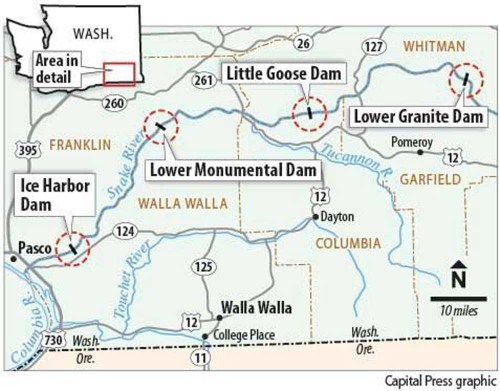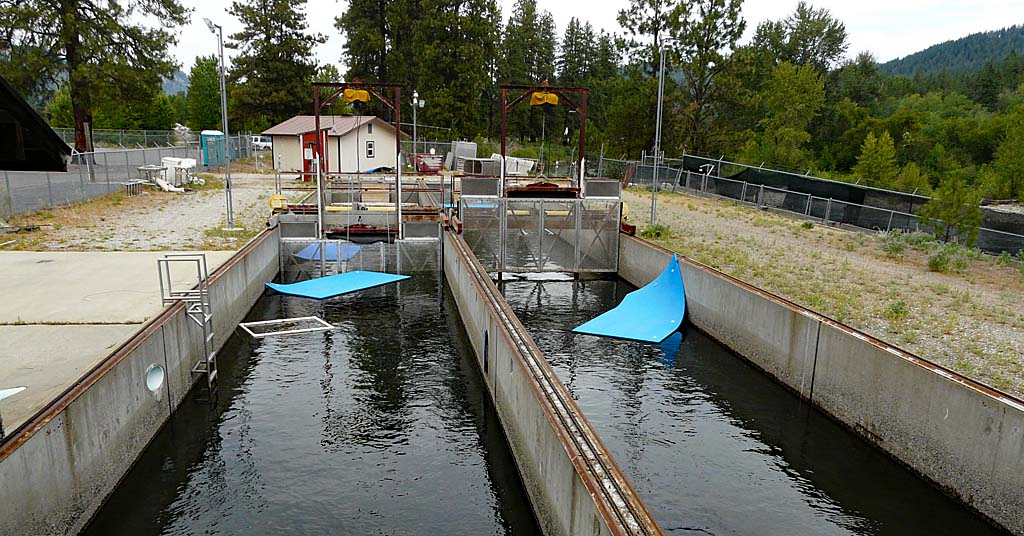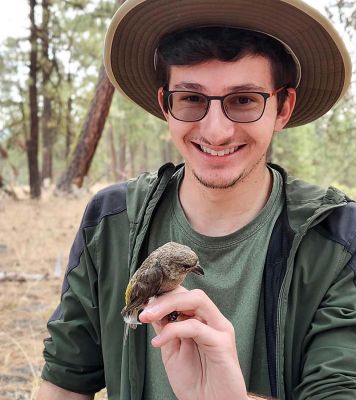Lawmakers question Snake River dam mediation secrecy
Published 1:30 pm Tuesday, June 27, 2023
RICHLAND, Wash. — U.S. Rep. Cliff Bentz led Republican lawmakers during a field hearing Monday, June 26, in Richland, Washington, as they hammered at the secrecy of surrounding federal mediation to reach a solution in long-running litigation over the four lower Snake River dams.
In 2020, a coalition of environmental and fishing groups, led by the Earthjustice law firm, sued over the U.S. Army Corps of Engineers, Bureau of Reclamation and Bonneville Power Administration’s latest dam operations plan, which called for spilling more water over dams, rehabbing wetland and riparian areas and modifying some fish passage facilities. The plan stopped short of breaching dams, which environmental groups consider a top priority.
Trending
The White House Council on Environmental Quality and Federal Mediation and Conciliation Service are running federal mediation during a stay of the litigation. The stay ends Aug. 31.
Bentz, R-Ontario, is the chair of the House Committee on Natural Resources Subcommittee on Water, Wildlife and Fisheries, which hosted the hearing. The subcommittee consists of 100% Republican membership. Bentz questioned representatives of the companies participating in the federal mediation process who had authorized the mediation’s confidentiality.
Three Republican House members joined Bentz — Dan Newhouse and Cathy McMorris Rodgers, both of Washington, and Mike Collins, of Georgia. The three are not part of the House subcommittee but have an interest in the issue at hand. Collins has been visiting communities across the country facing what he called “overregulation” of energy resources, transportation and other industries.
The four Republican representatives asked questions about the impacts breaching the dams would have to nine witnesses during the hearing. The witnesses represented agencies, electric companies, public utility districts, ports and agricultural commodities and stakeholders.
“Do you have any idea when Congress, the elected representatives of the people, will get an update about this confidential mediation that includes potential breaching of the dams?” McMorris Rodgers asked.
Participants in the mediation — Beth Coffey, director of programs for the U.S. Army Corps of Engineers Northwestern Division; Jennifer Quan, West Coast regional administrator, National Oceanic and Atmospheric Administration National Marine Fisheries Service, or NOAA Fisheries, and John Hairston, administrator and CEO of Bonneville Power Administration — all deferred to the CEQ and conciliation service.
Trending
Bentz accused the CEQ and the agencies in the mediation of trying to dewater the pools behind the two upper dams to “neuter” the dams and reach “the functional equivalent of dam breaching” to circumvent the congressional authorization that would be needed to breach the dams.
He pointed to phrasing in a “legal” memo that he said was given to all mediation participants referring to “extreme drawdowns that substantially reduce, if not eliminate, electricity production on the Snake River dams and destroy navigation by existing barges during large, if not all, portions of the year.”
Bentz declined to comment further about the memo, its author or how he obtained it.
Taking aim
Operational changes would be at the discretion of the agency and not require congressional approval, Coffey said in response to Bentz’s questions.
Quan said she is not aware of the memo to which Bentz referred.
Such an approach would “terrifically” damage ratepayers, taxpayers, farmers and ranchers and residents on the river, Bentz said.
“I don’t think there’s any doubt — we’ve hit upon exactly what they’re doing,” he said. “Now the question is, how do we appropriately say, this is not the proper way to create policy regarding the Northwest dams?”
Collins came to the event with both barrels blazing, denouncing the entire situation as “freaking overreach from federal government from an administration pushing a left-wing socialistic agenda down our throats” and later accusing that NOAA and other organizations consisting of nonelected staff have no right to be handing down guidelines for how the government should proceed. He pointed out that no Democratic members of Congress were in attendance.
The four legislators toured Ice Harbor Dam in Burbank, Washingon, earlier in the day.
Panelists and House members alike argued passionately for the preservation of the four lower Snake River dams — Ice Harbor, Lower Monumental, Little Goose and Lower Granite — citing data that their removal or drawdown might not be the silver bullet that will restore floundering salmon fisheries that proponents of their destruction claim, but instead unleash incalculable damage to the industrial, agricultural, economic, recreational and cultural fabric of the region whose energy foundation is built on low-cost reliable hydropower, as well as the greater U.S., which relies on those marine transportation corridors to efficiently reach western ports.
David Welch, president and founder, Kintama Research Services, based in Nanaimo, British Columbia, said he had been studying salmon-related issues for nearly 40 years and the science regarding Snake River dam breaching is “far from settled.”
“Put simply, I think the Snake River dams never caused the major problems that people thought they did over half a century ago,” he said. “They didn’t understand the effect of the ocean back then and they overestimated what construction of the Snake River dams was going to do.”
Shippers say the dams are vital to the region’s economy.
“Last fall, we needed 4.5 million gallons of liquid fertilizer on short notice — rail wouldn’t come through, our own truck fleet couldn’t possibly keep up with it, nor could anyone else’s,” said Alex McGregor, chairman of the McGregor Co. board of directors, in Colfax, Washington. “Tugs and barges were where we turned and they came through for us.”
Removing the dams would eliminate barging, agricultural stakeholders say. Alternative infrastructure to accommodate the increased truck and rail traffic that would result does not exist, they say.
“We believe communities, salmon and dams can coexist, because we are living proof that they do,” said Scott Corbitt, general manager of the Port of Lewiston in Lewiston, Idaho.
Much of the testimony at the hearing flies in the face of nearly 100 years of fish mortality research conducted by the Nez Perce Tribe that reveals an overarching trend of decline, along with that of others who point to low energy production amongst the threatened dams, irrevocable damage to American Indian cultural resources, including burial grounds, detrimental changes to habitat and the unnatural barrier the dams still pose to migrating fish, even when equipped with ladders and other passages.
Beth Coffey, director of programs, U.S. Army Corps of Engineers, Northwestern Division, based in Portland.
Jennifer Quan, West Coast regional administrator, National Oceanic and Atmospheric Administration National Marine Fisheries Service, or NOAA Fisheries, based in Seattle.
John Hairston, administrator and CEO, Bonneville Power Administration, based in Portland.
Scott Corbitt, general manager, Port of Lewiston, based in Lewiston, Idaho.
Rick Dunn, general manager, Benton Public Utility District, based in Kennewick.
Michelle Hennings, executive director, Washington Association of Wheat Growers, based in Ritzville, Washington.
Alex McGregor, president of the McGregor Co., based in Colfax, Washington.
Todd Myers, environmental director, Washington Policy Center, based in Cle Elum, Washington
David Welch, president and founder, Kintama Research Services, Ltd., based in Nanaimo, B.C., Canada.
The entire event was livestreamed and recorded and can be viewed on YouTune at rb.gy/ay454.










